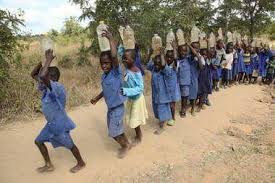By Chipo Gudhe
The lead planner for the Zibagwe Rural District Council’s master plan, Johnson Mikuku has revealed concerning statistics about education in Kwekwe District, highlighting a drastic 46% dropout rate from primary to secondary education in 2022.
During a recent survey conducted by the town planners, Mikuku noted that although 44,000 students were enrolled in primary schools, in 2022 only 11,000 continued to secondary education.
“The question we need to ask is, where did the 33,000 go? They dropped out along the way,” Mikuku said, emphasizing the severity of the situation.
He said the study identified long distances to secondary schools as a significant barrier, with students traveling 10 to 15 kilometers to reach institutions such as Sidakeni, Rujeko, and Siyapambili Secondary Schools.
“It is straining the children, so we need to narrow that in terms of provisions of learning institutions schools the distances are too pronounced. The nearest secondary school for example at Sidakeni, Rujeko and Siyapambili Secondary is 10 to 15km away,” Mikuku added, pointing out the need for a more balanced distribution of educational resource
Mikuku said despite a high literacy rate of 91% in the district, this figure primarily represents those educated up to the primary level, with secondary and tertiary education rates drastically lower.
“The literacy rate in the district is 91% but it is composed of largely people educated up to primary level. For secondary level the rate begins to drop and at tertiary level the rate is 1,7%, he said.
Mikuku also said there is a shortage of Advanced level and Early Child Development centres and this needs to be addressed
He also highlighted an imbalance in the educational infrastructure, with a greater number of primary schools compared to secondary schools, particularly on communal sides.
“We have more primary schools than secondary schools on the communal sides and this is resulting in pressure on secondary schools,” he said.
He said this imbalance puts undue pressure on the available secondary schools and contributes to the high dropout rates.
As part of efforts to address these issues, Mikuku and his team are proposing for a comprehensive review and reform of the educational infrastructure in the district. “There is a need to balance the distribution of secondary schools and address the shortage of Advanced Level and Early Child Development centres,” he stated, stressing the importance of strategic educational planning to combat these critical issues.



